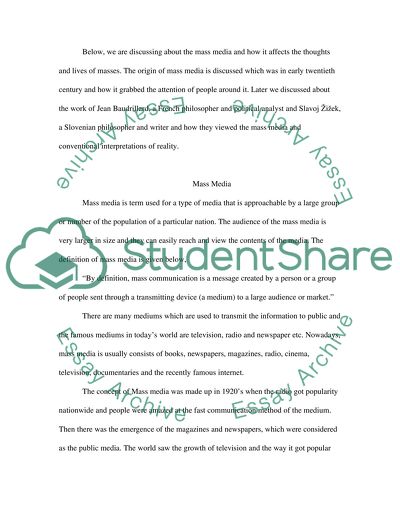Cite this document
(Conventional Interpretations of Reality in the Age of Mass Media Term Paper, n.d.)
Conventional Interpretations of Reality in the Age of Mass Media Term Paper. Retrieved from https://studentshare.org/media/1500136-mass-media-essay
Conventional Interpretations of Reality in the Age of Mass Media Term Paper. Retrieved from https://studentshare.org/media/1500136-mass-media-essay
(Conventional Interpretations of Reality in the Age of Mass Media Term Paper)
Conventional Interpretations of Reality in the Age of Mass Media Term Paper. https://studentshare.org/media/1500136-mass-media-essay.
Conventional Interpretations of Reality in the Age of Mass Media Term Paper. https://studentshare.org/media/1500136-mass-media-essay.
“Conventional Interpretations of Reality in the Age of Mass Media Term Paper”, n.d. https://studentshare.org/media/1500136-mass-media-essay.


